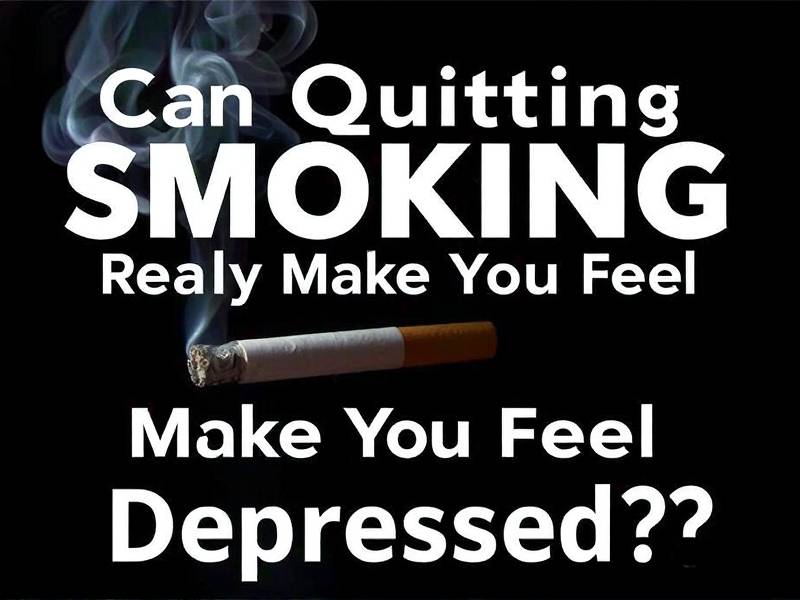Can Quitting Smoking Really Make You Feel Depressed?
Can Quitting Smoking Really Make You Feel Depressed? Understanding the Emotional Journey
Introduction: Quitting smoking is a significant decision that can lead to numerous health benefits. However, many smokers often wonder if giving up this habit might lead to feelings of depression. In this article, we will explore the relationship between quitting smoking and the risk of experiencing depression, providing insights into the emotional journey you might face.
Section 1: The Link Between Smoking and Depression Smoking has long been recognized as a risk factor for mental health issues, including depression. The nicotine in cigarettes creates a temporary sense of well-being, which can mask underlying feelings of sadness or anxiety. When smokers quit, they may experience withdrawal symptoms that can exacerbate these emotions.

Section 2: Withdrawal Symptoms and Emotional Changes Quitting smoking triggers withdrawal symptoms such as cravings, irritability, anxiety, and mood swings. These symptoms can make individuals feel overwhelmed and vulnerable to experiencing depressive symptoms. It's essential to understand that these feelings are temporary and part of the body's adjustment process.
Section 3: Coping Strategies for Managing Withdrawal Symptoms To mitigate the impact of withdrawal symptoms on your emotional well-being, it's crucial to develop effective coping strategies. Engaging in regular physical activity, practicing mindfulness techniques like meditation or yoga, seeking support from friends and family, and exploring alternative therapies such as acupuncture or hypnotherapy can help alleviate withdrawal symptoms.
Section 4: Long-Term Benefits of Quitting Smoking While quitting smoking may initially trigger feelings of depression due to withdrawal symptoms, it is essential to recognize the long-term benefits associated with giving up this habit. Research shows that individuals who quit smoking have a lower risk of developing various health issues like heart disease, stroke, and certain types of cancer. Moreover, quitting smoking can improve overall quality of life by enhancing mood and reducing stress levels.

Section 5: Seeking Professional Help if Needed If you find yourself struggling with feelings of depression while quitting smoking or if these emotions persist beyond a few weeks, it's crucial to seek professional help. Mental health professionals like therapists or counselors can provide tailored support and coping strategies specific to your needs.
Conclusion: Quitting smoking can indeed lead to temporary feelings of depression due to withdrawal symptoms. However, by understanding this emotional journey and implementing effective coping strategies, individuals can navigate through these challenges successfully. Remember that seeking professional help is always an option if needed. Embrace the journey towards a smoke-free life with determination and support from those around you.
